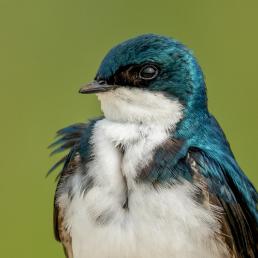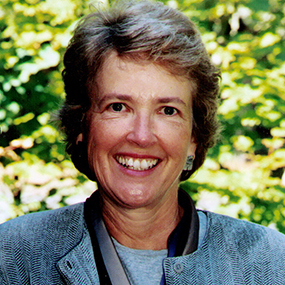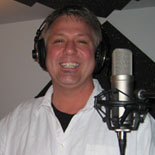

Join BirdNote tomorrow, November 30th!
Illustrator David Sibley and actor H. Jon Benjamin will face off in the bird illustration battle of the century during BirdNote's Year-end Celebration and Auction!
As our climate changes, restoring coastal wetlands will be increasingly important for the welfare of people and birds. As manager of the McKinney National Wildlife Refuge in Long Island Sound, Rick Potvin oversees coastal and island habitat for wildlife. Rick and communities along the Southern Connecticut shore are planning ways to use “green infrastructure” to absorb runoff and buffer tidal surges. Birds that nest on islands in the refuge – like this Black-crowned Night-Heron – will benefit from such foresight.
BirdNote®
Habitat and the Tipping Point Part II
Featuring Rick Potvin
Interview by Chris Peterson
This is BirdNote.
[Strong waves and wind throughout]
One hard lesson we’ve learned about climate change is that rising sea levels aren’t the only threat we have to plan for. Increasing storms have shown us how vital our wetlands are. These and other natural features of low-lying coastlines protect us from the tremendous energy released during storm surges.
[Strong waves and wind throughout]
Rick Potvin, manager of the McKinney National Wildlife Refuge on Long Island Sound, oversees coastal and island habitat for wildlife. Even as they know some low-lying areas will be lost, Rick and communities along the Southern Connecticut shore are planning ways to use “green infrastructure” – like dunes and wetlands – to absorb runoff and buffer tidal surges.
[Strong waves and wind throughout]
The Black-crowned Night-Herons, Snowy Egrets and Great Egrets that nest on the islands in the refuge will benefit from such foresight, Rick says.
[Call of Black-crowned Night-Heron]
Rick Potvin: “What we need to do is to get our habitats in the most robust condition we can because there will be a tipping point, and the animals that… the species that…get on the other side of the tipping point in global climate change, they will probably survive…and it will be us doing the work before this tipping point – in order to allow the animals as much time to acclimate to this tip.”
[Calls from a colony of Great Egrets]
BirdNote celebrates the efforts of public land managers to protect birds, habitat, and communities. Hear more stories of hope — and learn how you can get involved — at birdnote.org.
I’m Mary McCann.
###
Sounds of the birds provided by The Macaulay Library of Natural Sounds at the Cornell Lab of Ornithology, Ithaca, New York. Black-crowned Night-heron [45306] recorded by D.S. Herr; colony of Great Egrets [45625] by T.A. Parker III.
Wind and waves [Nature SFX 2 & 24] recorded by Gordon Hempton of QuietPlanet.com.
Executive Producer: Sallie Bodie
Producer: John Kessler
Editor: Ashley Ahearn
Associate Producer: Ellen Blackstone
Assistant Producer: Mark Bramhill
Recordist/Interviewer: Chris Peterson, Sony Disk - Oct 2010 G13T1
© 2014/2020 BirdNote February 2014/2020 Narrator: Mary McCann
potvinr-01-2014-02-27 potvinr-01b (part I is SOTB-habitatpreservation-01)
http://www.fws.gov/refuge/stewart_b_mckinney/



